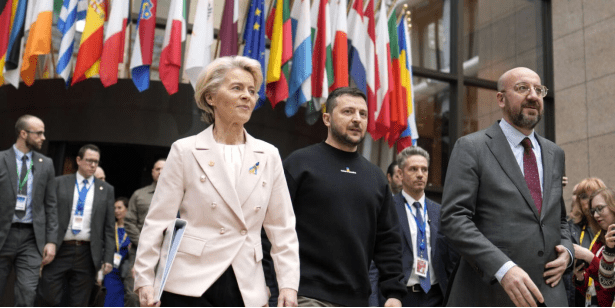
European Union Launches Formal Membership Negotiations with Ukraine and Moldova, Signaling a New Chapter Amid Regional Challenges
Fiona Nanna, ForeMedia News
5 minutes read. Updated 4:37AM GMT Fri, 26July, 2024
The European Union (EU) has officially commenced accession negotiations with Ukraine and Moldova, following the unanimous approval by its 27 member states last week. This milestone marks the beginning of a complex and prolonged process, with the inaugural ceremony scheduled for Tuesday in Luxembourg.
The launch of these negotiations is a pivotal moment for both countries, particularly Ukraine, which is currently embroiled in an ongoing conflict with Russia. The formal start of talks is expected to provide significant encouragement for Ukraine and Moldova as they strive to distance themselves from their Soviet-era past and align more closely with European standards.
Despite the EU’s green light, the road ahead is fraught with challenges. The accession process, which could span several years, will require a rigorous assessment of both countries’ legislative frameworks to ensure they meet the EU’s stringent criteria. Negotiations will focus on a broad array of issues, including taxation, environmental policies, and more.
The EU’s decision to engage in talks comes amid geopolitical turbulence, including Russia’s ongoing aggression in Ukraine and political instability in Moldova. The process will be closely watched as it unfolds, particularly given the recent political tensions within the EU. Notably, Hungary’s government, known for its close ties with Russia, attempted to obstruct the negotiations, but was ultimately unsuccessful.
The EU’s commitment to expanding its membership is viewed as a strategic response to Russia’s invasion of Ukraine, which has reinvigorated efforts to integrate Eastern European nations into the bloc. This expansion strategy also includes Georgia, which was granted candidate status in December, although it has since faced political hurdles that could impact its progress.
For Ukraine, the commencement of negotiations is seen as a significant morale booster. President Volodymyr Zelenskyy expressed optimism, stating, “These are truly historic moments. Ukraine is and will always be part of a united Europe. Millions of Ukrainians, and indeed generations of our people, are realizing their European dream.”
Leading the Ukrainian delegation at the event will be Deputy Prime Minister Olga Stefanishyna, while Prime Minister Dorin Recean will head the Moldovan team. The EU’s position will be represented by Belgian Foreign Minister Hadja Lahbib, as Belgium currently holds the EU’s rotating presidency.
The formal discussions will involve a comprehensive review of existing laws in Ukraine and Moldova to determine their alignment with EU regulations. The negotiations will encompass 35 key areas, from fiscal policies to environmental standards. Progress may be slow, with significant developments expected only after the upcoming six-month period, during which Hungary will preside over the EU.
As Ukraine and Moldova embark on this challenging journey toward EU membership, the international community will be closely monitoring their progress and the broader implications for European and global geopolitics.
Backlinks:
- EU Accession Process Overview
- Ukraine’s European Aspirations
- Moldova’s Path to EU Membership

